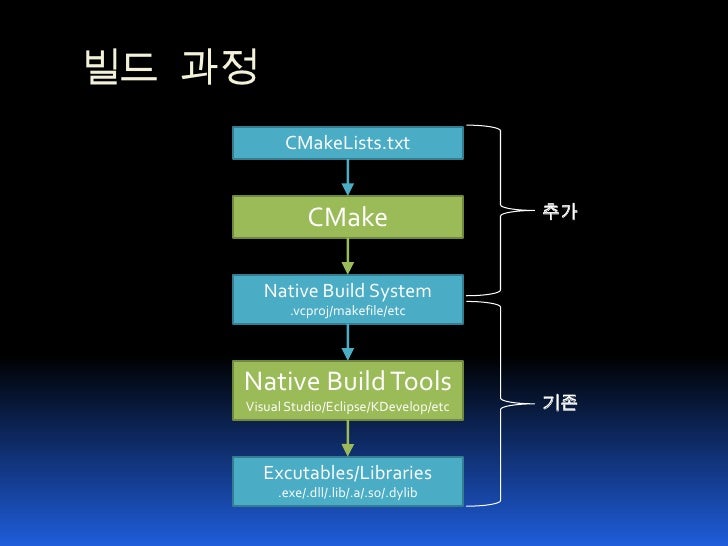

Repeated calls for the same append items in the order called.

The remaining arguments specify library names or flags. The named must have been created in the current directory by a command such as add_executable()or add_library(). Specify libraries or flags to use when linking a given target. Target_link_libraries() target_link_libraries( ]] See documentation of the OUTPUT_NAMEtarget property to change the part of the final file name. See documentation of the RUNTIME_OUTPUT_DIRECTORYtarget property to change this location. īy default the executable file will be created in the build tree directory corresponding to the source tree directory in which the command was invoked. The actual file name of the executable built is constructed based on conventions of the native platform (such as. The corresponds to the logical target name and must be globally unique within a project. Adds an executable target called to be built from the source files listed in the command invocation. See the cmake_policy() command documentation for discussion of the NO_POLICY_SCOPE option.Īdd_executable() add_executable( There is one exception to this: if the file which calls include() is located itself in the CMake module directory, then first the CMake module directory is searched and CMAKE_MODULE_PATH afterwards. cmake is searched first in CMAKE_MODULE_PATH, then in the CMake module directory. If a module is specified instead of a file, the file with name.
#CMAKE FUNCTION FULL#
If RESULT_VARIABLE is given the variable will be set to the full filename which has been included or NOTFOUND if it failed. If OPTIONAL is present, then no error is raised if the file does not exist. Variable reads and writes access the scope of the caller (dynamic scoping).
#CMAKE FUNCTION CODE#
Load and run CMake code from the file given. Once you make a debug build, you can run a debugger, such as gdb or lldb on it.Include() include(
#CMAKE FUNCTION GENERATOR#
There are distinct flags for this mode (variables ending in _DEBUG as opposed to _RELEASE), as well as a generator expression value CONFIG:Debug or CONFIG:Release. In multi-configuration generators, like many IDEs, you can pick the configuration in the IDE. Building in debug modeįor single-configuration generators, you can build your code with -DCMAKE_BUILD_TYPE=Debug to get debugging flags. If you add -trace-expand, the variables will be expanded into their values. There are related options as well, but they tend to bury you in output.įor example: cmake -S. Every line run in the file that you give will be echoed to the screen when it is run, letting you follow exactly what is happening. Have you wanted to watch exactly what happens in your CMake file, and when? The -trace-source="filename" feature is fantastic. If you want to print out a property, this is much, much nicer! Instead of getting the properties one by one of of each target (or other item with properties, such as SOURCES, DIRECTORIES, TESTS, or CACHE_ENTRIES - global properties seem to be missing for some reason), you can simply list them and get them printed directly: cmake_print_properties( However, a built in module makes this even easier: include(CMakePrintHelpers) The time honored method of print statements looks like this in CMake: message(STATUS "MY_VARIABLE=$") CMake debuggingįirst, let's look at ways to debug a CMakeLists or other CMake file. You might need to debug your CMake build, or debug your C++ code.


 0 kommentar(er)
0 kommentar(er)
